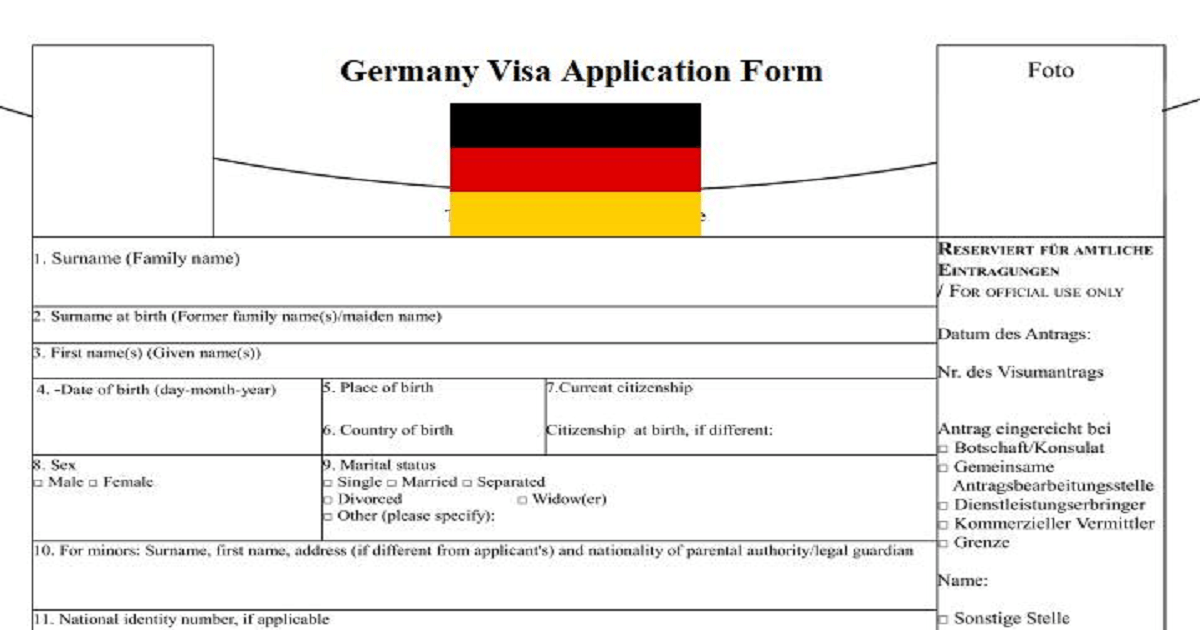Europe is a rich continent with thousands of years of history and heritage. Not only is Europe rich in history; but At the same time, they have been able to improve their economy. Various wars have enriched themselves through revolutions. The biggest shock was World War II. After that, there were no more obstacles in Europe. Considering the wheel dynamics of the economy, most of the modern technology, starting from the agricultural revolution, and the industrial revolution, was created by Europe. That is why Europe is another name for the developed world. How to Get EU Citizenship, How to Get Permanent EU Citizenship.
Europe remains a top destination for professionals seeking career opportunities abroad. With its vibrant economies, diverse cultures, and high quality of life, it’s no surprise that many aspire to work in European countries. However, understanding the work permit and visa eligibility requirements is crucial for ensuring a smooth application process. Immigration This guide provides an in-depth look at what you need to know about Europe’s work permits and visas.
Europe Work Permit & Visa Eligibility Requirements

Why Work in Europe?
Europe offers countless benefits for foreign workers, including:
- High-paying jobs: Many European countries offer competitive salaries.
- Career growth opportunities: Thriving industries like technology, healthcare, engineering, and finance offer robust career paths.
- Work-life balance: European nations are known for their shorter work weeks, paid vacations, and employee-friendly policies.
- Cultural diversity: Living and working in Europe allows you to experience a blend of cultures, languages, and traditions.
You May Also Apply For USA DV Lottery program 2025
Types of European Work Visas
Each European country has its own specific work visa requirements, but there are overarching categories that most nations follow:
- Short-term Work Visas: Designed for temporary employment, internships, or seasonal jobs, typically valid for less than a year.
- Long-term Work Visas: For employment contracts exceeding one year.
- EU Blue Card: A work permit for highly skilled professionals, valid across many EU member states, offering a streamlined process.
- Intra-company Transfer Visa: For employees relocating within their current company to a European branch.
- Freelance Visas: For self-employed individuals or freelancers seeking to work in Europe.
- Job Seeker Visas: Allow individuals to enter the country and search for employment within a specified period.
Apply Canada work permit visa
General Eligibility Requirements
While each country has specific conditions, the following are common eligibility criteria across Europe:
Valid Job Offer:
- Most work visas require proof of a valid job offer from a European employer.
- Employers may need to demonstrate that no local worker is available to fill the position.
Educational Qualifications:
- A degree or certification relevant to the job is often required.
- Highly skilled roles, such as IT professionals or engineers, may require advanced qualifications.
Work Experience:
- Relevant experience in the field enhances your eligibility.
- Some visas may require a minimum number of years of experience.
Language Proficiency:
- Knowledge of the local language or English is essential for many roles.
- Certificates such as IELTS or TOEFL may be required for English proficiency.
Sufficient Financial Resources:
- Proof that you can support yourself during the initial period of your stay.
- Bank statements or a sponsor’s financial guarantees are often requested.
Health Insurance:
- Comprehensive health insurance coverage is mandatory for most European work permits.
Clean Criminal Record:
- A background check may be conducted to ensure you have no criminal history.
Specific Requirements for Certain Professions:
- Some professions may require additional licensing or certifications (e.g., healthcare professionals).
Application Process for a European Work Visa
The process varies slightly by country but generally involves the following steps:
Secure a Job Offer:
- Obtain an employment contract or offer letter from a European employer.
Check Visa Type:
- Determine which visa aligns with your employment and duration.
Gather Required Documents:
- Commonly required documents include:
- Valid passport
- Job offer letter
- Educational certificates
- Proof of financial resources
- Health insurance
- Language proficiency certificates
- Commonly required documents include:
Submit Application:
- Apply at the relevant embassy or consulate in your home country.
- Some countries allow online applications for specific visa categories.
Attend an Interview:
- Be prepared to explain your purpose of travel, job role, and financial situation.
Wait for Approval:
- Processing times vary but typically range from a few weeks to a few months.
Receive Your Visa and Relocate:
- Once approved, finalize travel arrangements and settle in your chosen country.
EU Blue Card: A Streamlined Option for Highly Skilled Workers
The EU Blue Card is a popular choice for skilled professionals due to its many benefits:
- Eligibility:
- Requires a higher education degree or at least five years of professional experience.
- A minimum annual salary threshold (varies by country) must be met.
- Validity:
- Typically issued for 1-4 years and renewable.
- Allows movement between EU member states after specific conditions are met.
- Family Reunification:
- Blue Card holders can bring family members without lengthy processing.
Country-Specific Requirements
Here are some highlights of work visa requirements in key European countries:
Germany:
- Known for its job seeker visa, allowing professionals to search for employment for up to six months.
- High demand for IT, engineering, and healthcare professionals.
France:
- Offers Talent Passport visas for skilled professionals, entrepreneurs, and researchers.
- Requires proof of a signed work contract and minimum salary.
Netherlands:
- Provides Highly Skilled Migrant visas for roles with salaries above a threshold.
- Offers startup visas for entrepreneurs.
Sweden:
- Requires a valid job offer with terms meeting Swedish collective agreements.
- Critical skill shortages in healthcare and education.
Spain:
- Offers work visas for both employed and self-employed individuals.
- Non-EU nationals can also explore seasonal work permits.
United Kingdom:
- Although not part of the EU, the UK’s Skilled Worker visa remains popular post-Brexit.
- Requires a job offer from an approved sponsor.
Tips for a Successful Application
- Research Visa Types: Familiarize yourself with the visa requirements specific to your destination country.
- Prepare Documents in Advance: Ensure all paperwork is accurate and complete.
- Leverage Professional Networks: Platforms like LinkedIn can help secure job offers.
- Consult Experts: consultants or lawyers can provide valuable guidance.
- Stay Updated: Visa rules frequently change; always refer to official government sources.
Common Challenges and How to Overcome Them
- Lengthy Processing Times:
- Apply well in advance to avoid delays.
- Language Barriers:
- Enroll in language courses to improve your chances.
- Job Market Competition:
- Tailor your CV and cover letter to European standards.
Conclusion
Securing a work permit and visa for Europe may seem complex, but with proper preparation and understanding of the requirements, the process becomes manageable. Whether you’re a skilled professional seeking an EU Blue Card, a freelancer exploring opportunities, or a job seeker planning your next move, Europe offers endless possibilities. Start planning today to turn your European career aspirations into reality.
 Job Pagol Pagol Kora Website for Bangladeshi Jobs
Job Pagol Pagol Kora Website for Bangladeshi Jobs





